Find your degree
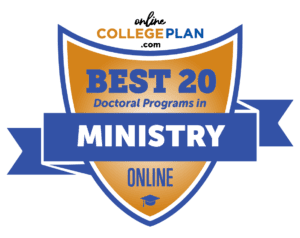
Online doctoral programs in ministry, or Doctor of Ministry programs – D.Min for short – are professional degrees for those working in religious ministry. As a doctorate, it is considered a terminal degree in the area of ministry. Prerequisites for those who wish to obtain a Doctor of Ministry degree include having a Master of Divinity degree in most cases.
Those who work in ministry have a passion to serve God and to do His work on the Earth. Earning a Doctor of Ministry helps those working in this field to fulfill their passions and gives them a sense of completion in their education. Reaching the highest educational degree in ministry can offer a sense of satisfaction in their commitment to the ministry.

“The ordinary ministry is that which receives all of its direction from the will of God revealed in the Scriptures and from those means which God has appointed in the church for its continual edification.”
–William Ames
Our goal is to bring information about the individual programs to our ranking for the sake of comparisons. However, in some cases, there is much more information provided to the general public regarding the programs and others may only offer minimal details. For this reason, program descriptions may vary in detail, and any new information may be added or updated as it is made available.
As with many online doctoral programs, there are often residency requirements involved. Some may require more in-person visits than others. In the interest of variety, hybrid programs were not excluded from the ranking. Prospective students are able to follow the links to request more information about the programs listed in this ranking.
What is a Doctor of Ministry Program?
A Doctor of Ministry program is a post-graduate program in the ministry discipline. The Doctor of Ministry program is a terminal degree and usually follows a Master of Divinity degree. In most cases, students pursuing this degree will do so at a Christian college or seminary. There are even many online schools of theology to choose from.
DMin programs are often designed with pastors, youth ministry leaders, urban ministry leaders, mission leaders, and educators in mind. There are many career options with a Doctor of Ministry. These potential careers include Christian authors, speakers, theologians, professors, teachers, or those who work in mission agencies or non-profit organizations.
Doctor of Ministry programs can have a variety of concentrations or specializations, such as:
- Evangelism
- The Psychology of Religion
- Homiletics

- Apologetics
- Spiritual formation
- Ethics
- Church growth
- Urban Youth Ministry
- Church & Ministry Multiplication
- Leadership
- Church Leadership
- Transformational Leadership
- Leading for Congregational Change
- Applied theology
- Theology Reflection
- Biblical and Theological Engagement
- Theology of Work

- Ministry in Complex Contexts
- Biblical Studies: Mentoring Relationships in the Old and New Testament
- Pastoral or Christian Counseling
- Congregation and Family Care
How Long Does It Take to Get a Doctorate in Ministry?
Programs can vary in length depending on the institution which offers them. Some programs may be completed in about three years. However, student progress can be very individual, and in some cases, it can be five to six years before they are able to complete their doctorate.
Those who are seeking a doctorate need to consider how much time they have to spend on their studies as well as how much time it will take them to complete the final project, thesis, or dissertation. Proper planning and time management can help doctoral students earn their degree in the least amount of time allowed by their program of choice. Of course, when the studies are a joy, completion time is less of a goal than the experience itself, so finding a flexible program may be more suitable for those who aren’t concerned with how quickly they may earn the degree.

Methodology
When searching for the best online doctoral programs in ministry, there are a number of statistics or features to look at when choosing a program. When ranking these programs and examining the schools that provide these programs, points were awarded to schools in four categories chosen to reflect the quality of the program and the school offering it. The maximum possible score any school could achieve would be 80 points.

An important factor many consider when returning to school is affordability. When determining affordability, the institutions with the lowest average cost of tuition and fees were given the highest score, which was 25 points. The number of points awarded decreased as the average cost of tuition and fees increased. Tuition costs come from the most recent numbers as reported by the National Center for Education Statistics (NCES).
Other factors include the overall size of the student body. While the size of the school is often an individual preference, schools that had more students in attendance were ranked higher than those with fewer students. The reason behind this is with more students, it is expected that overall there are a higher number of degrees awarded at those schools. The school with the most students ranked highest with 25 points being the highest awarded.
Another statistic which may influence choice is the student-to-faculty ratio at the school. Many students want to know that help is there when they need it, and while this can be true at schools with more students per faculty member, preference was given to those with fewer students per faculty member. The highest number of points awarded was 25.

The opinions of students who have attended the school are important to us at OnlineCollegePlan. However, due to fewer student reviews for the schools that offer a Doctor of Ministry or similar doctoral program, the influence on the ranking is much less than other factors. The maximum number of points awarded was 5.
The following percentages reflect the influence each statistic has on the ranking:
- Affordable Tuition 31.25%
- Student to Faculty Ratio 31.25%
- Size of the Student Body 31.25%
- Quality based on Student Reviews via Niche 6.25%
In the event of a tie ranking score, the alphabetical order of the institutions was used to determine the ranking order. All ranking scores are disclosed as Merit. No institution featured in this ranking was given preferential treatment, nor was any requested. All institutions are not-for-profit.
Note: In one case, an obvious incongruency was noticed for tuition & fees and was corrected for our ranking calculations by consulting the school website.
Below you will find the Best 20 Online Doctoral Programs in Ministry.



 The Apex School of Theology was founded by the Reverend Dr. Joseph E. Perkins in 1995 as the Apex Academy School of Religion in Apex, North Carolina. The school outgrew its original facilities at the historic, Apex First Baptist Church and relocated to the city of Durham in 2002. In 2006 the school once again changed locations while staying in the city Durham.
The Apex School of Theology was founded by the Reverend Dr. Joseph E. Perkins in 1995 as the Apex Academy School of Religion in Apex, North Carolina. The school outgrew its original facilities at the historic, Apex First Baptist Church and relocated to the city of Durham in 2002. In 2006 the school once again changed locations while staying in the city Durham.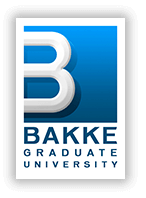 Bakke Graduate University is located in Dallas, Texas and although it does offer hybrid programs it is well known for its experiential learning in urban environments. The Doctor of Ministry program offered at Bakke is unique due to this style of teaching. Their DMin program is broken down into three phases.
Bakke Graduate University is located in Dallas, Texas and although it does offer hybrid programs it is well known for its experiential learning in urban environments. The Doctor of Ministry program offered at Bakke is unique due to this style of teaching. Their DMin program is broken down into three phases.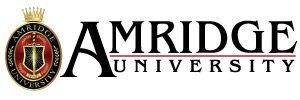 Located in Montgomery, Alabama and founded in 1967, Amridge University is a leader in distance education and online programs, including a DMin program. In fact, distance education is the primary method of program delivery at Amridge.
Located in Montgomery, Alabama and founded in 1967, Amridge University is a leader in distance education and online programs, including a DMin program. In fact, distance education is the primary method of program delivery at Amridge.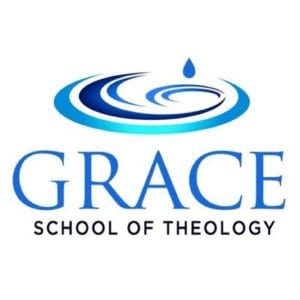 Grace School of Theology is a private, non-denominational, institution of higher learning which opened as Houston Theological Seminary in 2002. The school changed its name to Grace School of Theology the following year. The school is located in Conroe, Texas in the metropolitan area of Houston with administrative buildings, the main library, and some classrooms located in The Woodlands, Texas.
Grace School of Theology is a private, non-denominational, institution of higher learning which opened as Houston Theological Seminary in 2002. The school changed its name to Grace School of Theology the following year. The school is located in Conroe, Texas in the metropolitan area of Houston with administrative buildings, the main library, and some classrooms located in The Woodlands, Texas.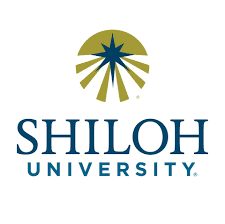 Shiloh University, named after the biblical story of Shiloh, was founded as an online Bible college and seminary in 2006. Shiloh University is based in Kalona, Iowa. Unlike many online programs, the courses taught at Shiloh University do not have residency requirements which allow students from virtually any location to be able to participate.
Shiloh University, named after the biblical story of Shiloh, was founded as an online Bible college and seminary in 2006. Shiloh University is based in Kalona, Iowa. Unlike many online programs, the courses taught at Shiloh University do not have residency requirements which allow students from virtually any location to be able to participate. Piedmont International University was founded by Dr. Charles H. Stevens. Dr. Stevens who served as pastor of Salem Baptist Church in Winston-Salem, North Carolina in the 1920s and again for many years from the 1930s on into the 1970s. Dr. Stevens established the school as Piedmont Bible Institute in 1945 in order to help war veterans begin their Bible studies. Through dedication and devotion over the years, the school has grown into what is now the Piedmont International University (PIU).
Piedmont International University was founded by Dr. Charles H. Stevens. Dr. Stevens who served as pastor of Salem Baptist Church in Winston-Salem, North Carolina in the 1920s and again for many years from the 1930s on into the 1970s. Dr. Stevens established the school as Piedmont Bible Institute in 1945 in order to help war veterans begin their Bible studies. Through dedication and devotion over the years, the school has grown into what is now the Piedmont International University (PIU).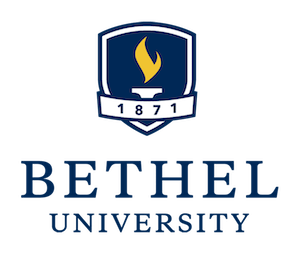 Baptist Union Theological Seminary was founded in 1871 by John Alexis Edgren in order to train pastors to serve Swedish Baptist immigrants who were coming to the country to escape religious persecution in Europe. Although founded in Chicago, in 1914 the seminary moved to Saint Paul where it merged with a Christian high school. From there the school expanded into Bethel Seminary & College and continued to grow. In 2004, the institution became known as Bethel University, a private Christian university, which consists of 4 schools to serve its students:
Baptist Union Theological Seminary was founded in 1871 by John Alexis Edgren in order to train pastors to serve Swedish Baptist immigrants who were coming to the country to escape religious persecution in Europe. Although founded in Chicago, in 1914 the seminary moved to Saint Paul where it merged with a Christian high school. From there the school expanded into Bethel Seminary & College and continued to grow. In 2004, the institution became known as Bethel University, a private Christian university, which consists of 4 schools to serve its students: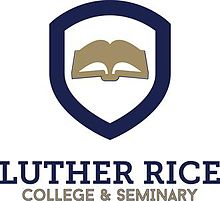 Luther Rice Seminary was founded in 1962 in Jacksonville, Florida. Later in 1991, the school moved its campus and is now located in Metro Atlanta, Georgia. Today, well over one thousand students in attendance at Luther Rice College and Seminary. Luther Rice has always been innovative when it comes to distance education, so it is no surprise to find their program in this ranking.
Luther Rice Seminary was founded in 1962 in Jacksonville, Florida. Later in 1991, the school moved its campus and is now located in Metro Atlanta, Georgia. Today, well over one thousand students in attendance at Luther Rice College and Seminary. Luther Rice has always been innovative when it comes to distance education, so it is no surprise to find their program in this ranking. Maranatha Baptist Bible College in Watertown, Wisconsin was founded by Dr. B. Myron Cedarholm, a member of the Fundamental Baptist Fellowship International, in 1968. Later, in 2013, the name was changed to Maranatha Baptist University to reflect the growth of the school and the range of programs offered to students. Today, more than 11,000 students earn their education from Maranatha on-campus and online.
Maranatha Baptist Bible College in Watertown, Wisconsin was founded by Dr. B. Myron Cedarholm, a member of the Fundamental Baptist Fellowship International, in 1968. Later, in 2013, the name was changed to Maranatha Baptist University to reflect the growth of the school and the range of programs offered to students. Today, more than 11,000 students earn their education from Maranatha on-campus and online.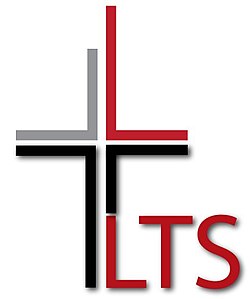 The Lexington Theological Seminary is located in Lexington, Kentucky. The seminary was founded in 1865 and has roots dating as far back as 1836. While LTS has a relationship with the Christian Church (Disciples of Christ), it is an ecumenical seminary that welcomes students from all paths of Christianity.
The Lexington Theological Seminary is located in Lexington, Kentucky. The seminary was founded in 1865 and has roots dating as far back as 1836. While LTS has a relationship with the Christian Church (Disciples of Christ), it is an ecumenical seminary that welcomes students from all paths of Christianity. Located in Atlanta, Georgia, Beulah Heights University is one of the fastest growing Bible institutions in the country. The school was founded in 1918 as Beulah Heights Bible Institute and offers students a high-quality education steeped in Protestant Christian tradition. Throughout the years, the school changed names as it grew and expanded its curriculum. In 2006, it officially became Beulah Heights University.
Located in Atlanta, Georgia, Beulah Heights University is one of the fastest growing Bible institutions in the country. The school was founded in 1918 as Beulah Heights Bible Institute and offers students a high-quality education steeped in Protestant Christian tradition. Throughout the years, the school changed names as it grew and expanded its curriculum. In 2006, it officially became Beulah Heights University. Calvary University is located in Kansas City, Missouri. The university today is the result of a successful merger of Kansas City Bible College (KCBC) and Midwest Bible College in St. Louis in 1961. Later the school grew more as Citadel Bible College of Ozark, Arkansas joined Calvary University in 1987. Since the history of Calvary University is traced back through these colleges, the school seal proudly has the year 1932 above the crest — the year that KCBC first opened its doors.
Calvary University is located in Kansas City, Missouri. The university today is the result of a successful merger of Kansas City Bible College (KCBC) and Midwest Bible College in St. Louis in 1961. Later the school grew more as Citadel Bible College of Ozark, Arkansas joined Calvary University in 1987. Since the history of Calvary University is traced back through these colleges, the school seal proudly has the year 1932 above the crest — the year that KCBC first opened its doors.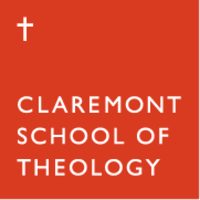 The Claremont School of Theology is a private graduate institution based in Claremont, California. It was founded in 1885 and has remained a small school throughout its history; there are just over 350 students enrolled today. Despite its small size, Claremont does have great distance education opportunities. Over half of the student body takes classes online.
The Claremont School of Theology is a private graduate institution based in Claremont, California. It was founded in 1885 and has remained a small school throughout its history; there are just over 350 students enrolled today. Despite its small size, Claremont does have great distance education opportunities. Over half of the student body takes classes online. Montgomery, Alabama is home to Faulkner University, which is a private Christian university associated with the Churches of Christ. Faulkner was founded in 1942 as a bible school, and it moved up the ranks over several decades. The university offers degrees at all levels, but online learning is more popular with the graduate population. Only a third of those students are enrolled solely in face-to-face classes.
Montgomery, Alabama is home to Faulkner University, which is a private Christian university associated with the Churches of Christ. Faulkner was founded in 1942 as a bible school, and it moved up the ranks over several decades. The university offers degrees at all levels, but online learning is more popular with the graduate population. Only a third of those students are enrolled solely in face-to-face classes. Liberty University in Lynchburg, Virginia is a leader in online education. Distance education began on VHS tapes at this school back in 1985. Now, only 15,000 out of a total of 75,000 students attends campus at all. This is one of the largest Christian universities in the world and it is the largest private university in the country.
Liberty University in Lynchburg, Virginia is a leader in online education. Distance education began on VHS tapes at this school back in 1985. Now, only 15,000 out of a total of 75,000 students attends campus at all. This is one of the largest Christian universities in the world and it is the largest private university in the country. Regent University is also located in Virginia, over in Virginia Beach. However, it is considerably smaller than Liberty with roughly 9500 students. Degrees are offered from the associates to bachelors level, with extensive online options. It was first founded in 1977 and has held different affiliations throughout the years. Regent is an interdenominational evangelical institution.
Regent University is also located in Virginia, over in Virginia Beach. However, it is considerably smaller than Liberty with roughly 9500 students. Degrees are offered from the associates to bachelors level, with extensive online options. It was first founded in 1977 and has held different affiliations throughout the years. Regent is an interdenominational evangelical institution. Southeastern Baptist Theological Seminary is most commonly referred to as its abbreviation, SEBTS. It is a seminary of the Southern Baptist Convention that was founded in 1950. It is located in Wake Forest, North Carolina. It is accredited by the Association of Theological Schools in the United States and Canada and the Southern Association of Colleges and Schools, Commission on Colleges.
Southeastern Baptist Theological Seminary is most commonly referred to as its abbreviation, SEBTS. It is a seminary of the Southern Baptist Convention that was founded in 1950. It is located in Wake Forest, North Carolina. It is accredited by the Association of Theological Schools in the United States and Canada and the Southern Association of Colleges and Schools, Commission on Colleges.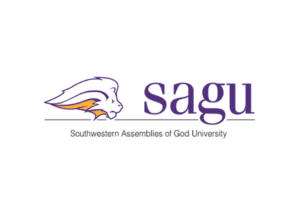 Southwestern Assemblies of God University is in Waxahachie, Texas and serves over 2,000 students. This university was created by the merging of Southwestern Bible School, Shield of Faith Bible Institute, and Southern Bible College. It is officially stated that the university was founded in 1927 and the mergers and growth took place over time. It has been operating as SAGU since 1994. It is affiliated with the Assemblies of God.
Southwestern Assemblies of God University is in Waxahachie, Texas and serves over 2,000 students. This university was created by the merging of Southwestern Bible School, Shield of Faith Bible Institute, and Southern Bible College. It is officially stated that the university was founded in 1927 and the mergers and growth took place over time. It has been operating as SAGU since 1994. It is affiliated with the Assemblies of God. United Theological Seminary of the Twin Cities in New Brighton, Minnesota offers traditional and online degree programs at the graduate level. The majority of their student body, which totals under 100, studies on campus but there is plenty of opportunity for distance learning. It is an ecumenical institution and is affiliated with the United Church of Christ.
United Theological Seminary of the Twin Cities in New Brighton, Minnesota offers traditional and online degree programs at the graduate level. The majority of their student body, which totals under 100, studies on campus but there is plenty of opportunity for distance learning. It is an ecumenical institution and is affiliated with the United Church of Christ. Not to be confused by the Indiana institution of the same name, Anderson University is in Anderson, South Carolina. The school’s motto is “to nourish humanity through the cross,” and that has been its mission since its founding in 1911. Degrees are offered in more than 50 areas at the bachelors, masters, and doctorate levels. It is affiliated with the South Carolina Baptist Convention. The majority of its students are taking at least some classes online. Over half of its graduate population studies solely online.
Not to be confused by the Indiana institution of the same name, Anderson University is in Anderson, South Carolina. The school’s motto is “to nourish humanity through the cross,” and that has been its mission since its founding in 1911. Degrees are offered in more than 50 areas at the bachelors, masters, and doctorate levels. It is affiliated with the South Carolina Baptist Convention. The majority of its students are taking at least some classes online. Over half of its graduate population studies solely online.
 Seminary school is a Christian graduate school that is designed to prepare students to be ordained. Because it is a graduate school, you are required (most of the time) to have already completed an undergraduate degree. The typical length of time to complete your undergrad, or earn your bachelors degree, is four years. Seminary school itself is between three and three and a half years. So, it will take you about four years to get to seminary, and then can take another four for you to get through it.
Seminary school is a Christian graduate school that is designed to prepare students to be ordained. Because it is a graduate school, you are required (most of the time) to have already completed an undergraduate degree. The typical length of time to complete your undergrad, or earn your bachelors degree, is four years. Seminary school itself is between three and three and a half years. So, it will take you about four years to get to seminary, and then can take another four for you to get through it. Every denomination and sometimes even churches within that denomination are going to have different requirements when it comes to becoming a pastor. Because there are so many different walks in Christianity, we can only give you the baseline information on this topic. First of all, most churches do require you to have completed seminary school, which we have established is seven years. That is the least amount of time that it can take.
Every denomination and sometimes even churches within that denomination are going to have different requirements when it comes to becoming a pastor. Because there are so many different walks in Christianity, we can only give you the baseline information on this topic. First of all, most churches do require you to have completed seminary school, which we have established is seven years. That is the least amount of time that it can take. There is a lot of debate that surrounds this topic. There is no official title awarded by the church or in the bible when it comes to the spouse of a pastor. The main thing to remember is to be respectful and follow the traditions of your denomination or church. For instance, some churches refer to the pastor’s wife as the First Lady of the church; however, this is not true everyone and some traditions view this as not being biblical.
There is a lot of debate that surrounds this topic. There is no official title awarded by the church or in the bible when it comes to the spouse of a pastor. The main thing to remember is to be respectful and follow the traditions of your denomination or church. For instance, some churches refer to the pastor’s wife as the First Lady of the church; however, this is not true everyone and some traditions view this as not being biblical. A Doctor of Divinity is not a degree that you can go to school and earn. Instead, it is what is considered an honorary degree. Being awarded an honorary degree is not the same as earning an actual doctorate. Instead, this is a symbol of recognition that dates back to the middle ages.
A Doctor of Divinity is not a degree that you can go to school and earn. Instead, it is what is considered an honorary degree. Being awarded an honorary degree is not the same as earning an actual doctorate. Instead, this is a symbol of recognition that dates back to the middle ages. There is a huge difference in the terms theology and divinity even though they seem to be used fairly interchangeably in the realm of education. At the simplest, divinity is the state of being divine; however, it can also be used to reference someone who is regarded as having some special relationship or access to the divine. The latter meaning of the word is why the first professional degree in the field is called a Master of Divinity. Pastors are regarded as having a special relationship with the divine (God). In a general context, the words divinity and theology can be used interchangeably, but if you’re someone who is highly-specific, theology may be the better word even though they are synonyms in academia.
There is a huge difference in the terms theology and divinity even though they seem to be used fairly interchangeably in the realm of education. At the simplest, divinity is the state of being divine; however, it can also be used to reference someone who is regarded as having some special relationship or access to the divine. The latter meaning of the word is why the first professional degree in the field is called a Master of Divinity. Pastors are regarded as having a special relationship with the divine (God). In a general context, the words divinity and theology can be used interchangeably, but if you’re someone who is highly-specific, theology may be the better word even though they are synonyms in academia.